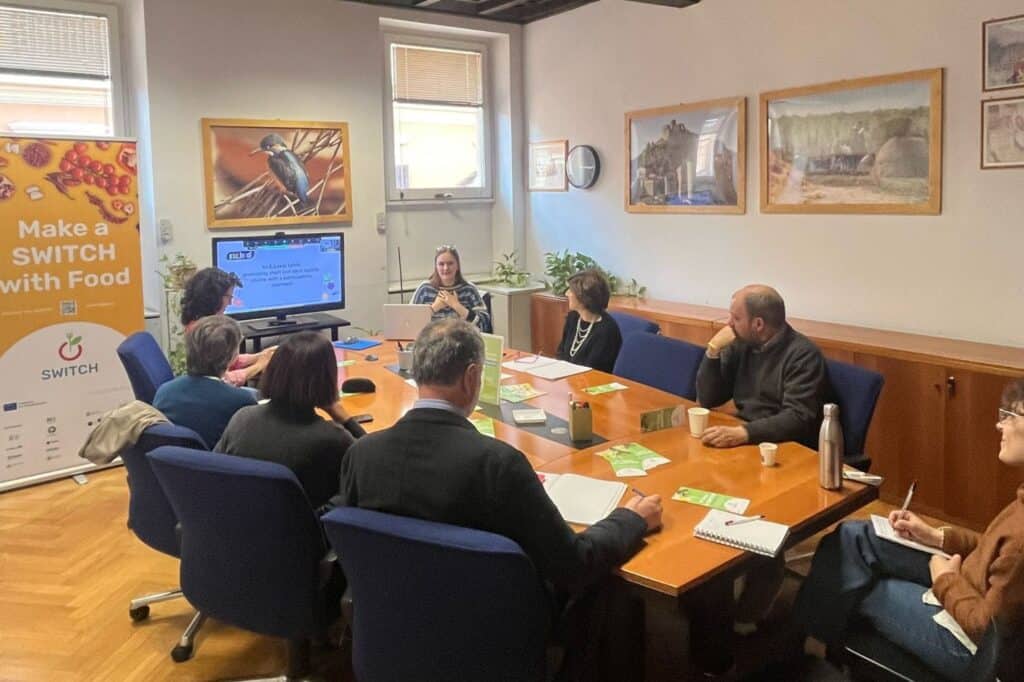On March 24, 2025, the Rome and the Montpellier SWITCH Hubs came together for an
afternoon of exchange and co-creation, focusing on the Ici.C.Local labelling initiative, where
Rome Hub invited the Montpellier Hub to introduce to local relevant stakeholders the
Ici.C.Local approach, developed by INRAE.
The meeting was hosted by Agro Camera as Rome Hub Leader and attended by the Food
Council of Rome Capital, with President and representatives of some tables; the Campagna
Amica Foundation and the American University of Rome.
Ici.C.Local label aims to promote transparency, sustainability, and local economic
development in short food supply chains. The meeting provided an opportunity to explore
how similar practices could be adapted to Rome’s local markets, strengthening the
connection between consumers and local producers.
INRAE, as representative of the SWITCH Montpellier Hub, presented the Ici.C.Local label
and approach. Launched in 2008, Ici.C.Local is a voluntary labelling system designed to
restore consumer confidence by providing clear visual information about the origins of food
products. The label provides an opportunity for the consumer to contribute to short and more
sustainable food supply chains, creating a more direct relation between them and the food
producers and sellers of their markets. The local experience of the label is directed by a
territorial committee consisting of voluntary sellers and producers, consumers, and local
partners who define the local charter of labelling criteria (such as setting the distance
between producers and consumers considered “local”), grants usage rights, and oversees
accordance. The territorial committee is in charge of reflecting local agricultural constraints
and opportunities in its charter, and ensure proper use of the label.
For the SWITCH Hubs, this meeting offered a valuable opportunity to share experiences on
the functioning of local markets, with their respective barriers and opportunities. The
discussions focused on the role of participatory governance in building trust and
transparency, the importance of flexible labelling criteria to adapt to regional differences, and
the potential of such initiatives to enhance local food networks. By examining the Ici.C.Local
initiative, the Rome Hub gained concrete insights into how labelling can strengthen more
honest collaboration between farmers, markets, and consumers while encouraging
sustainable consumption practices and Montpellier Hub received an overview on the ongoing
strategies in Rome, such as the Rome Food Council, the local farmers’ markets and the
World Farmers Markets Coalition experience.
This initiative aligns with the broader objectives of the SWITCH project, which aims to
develop the transition toward sustainable and healthy dietary behaviours across Europe. By
learning from successful models and adapting them to local contexts, SWITCH Hubs can
play a key role in shaping more sustainable food systems.
For more updates on co-creation, stay tuned on the SWITCH website.

